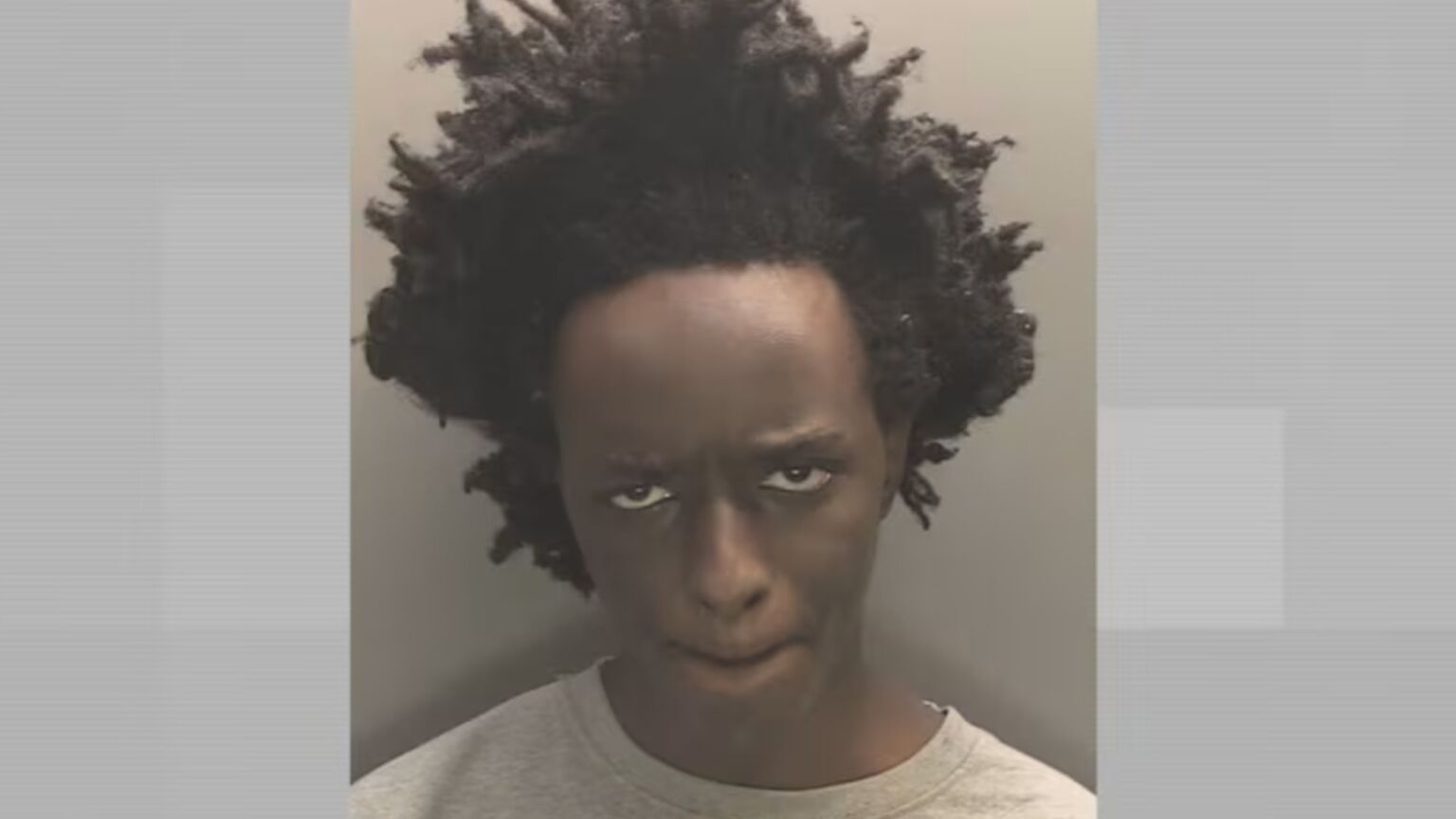Why wasn’t Axel Rudakubana stopped?
The Southport killer was enabled by our feckless, decrepit state.

Want unlimited, ad-free access? Become a spiked supporter.
On this day last year, Axel Rudakubana took a taxi to a Taylor Swift-themed dance class in Southport, Merseyside. Within 15 minutes of arriving, he savagely murdered three young children, attempted to murder eight more, and attacked two adults who tried to stop him. Had they not managed to escape, thanks largely to the bravery of the adults at the scene, all 26 girls would almost certainly have been murdered.
The ferocity of his crimes was unconscionable and incomprehensible. But this was not a random attack that came out of the blue. It was premeditated and planned. And it was carried out by someone who was known to the authorities. Someone known to have an obsession with violence that he had previously acted on.
It is not that Rudakubana ‘slipped through the net’. He was caught in the net, multiple times, by multiple state bodies. But they did nothing to stop him. In the years leading up to the Southport atrocity, he was referred to or had contact with the A to Z of agencies, from the Multi-Agency Safeguarding Hub to Children’s Social Care to the Early Help Service and Child and Adolescent Mental Health Services. Most damning of all, he was referred to Prevent, the UK government scheme tasked with tackling violent extremism, three times. Each case was closed prematurely.
Red flag after red flag was ignored. In October 2019, Rudakubana was excluded from school for possessing a knife. In fact, he admitted to bringing a knife to school on 10 separate occasions. When asked why, he said he planned ‘to use it’. Around the same time, speaking anonymously to Childline, he confessed to having murderous thoughts. ‘What should I do if I want to kill somebody?’, he asked.
A month later, he was caught searching for school shootings during an ICT lesson. By then, he was known to have an obsession with extreme violence. Only a month after that, Axel brought a knife and hockey stick to school. He used the stick to break the wrist of another pupil. According to Merseyside Police, he was ‘intending to hit the victim with the hockey stick and finish him off with the knife and was not bothered by the prospects of prison’. The school’s headteacher said he had ‘no sense of the wrongness’ of his actions.
It was around this time that Rudakubana was first arrested and earned his first conviction, after police found a knife in his backpack. He was made to undertake a rehabilitation programme focussed on knife crime. Not long after completing it, in 2021, he was found by police on a bus with a knife. He told officers he wanted to stab someone. Instead of arresting him, police took him home and told his mother to keep knives out of his reach. Police were called to his house four times between October 2019 and May 2022, mostly due to his erratic behaviour, but no robust action was ever taken.
The hockey-stick incident led to his first referral to Prevent. At this early stage, counter-extremism officers knew he had been ‘researching school shootings’, had been ‘talking about stabbing people’ and had expressed approval of the Manchester Arena bombing, in which Islamist terrorist Salman Abedi murdered 22 people at an Ariana Grande concert in 2017 – six of them children, the youngest just eight years old. Rudakubana’s case was closed only a month later, in January 2020.
The second and third referrals to Prevent came in February and April 2021. Both concerned his internet use, including violent social-media posts and searches for the London Bridge stabbings, the Israel-Palestine conflict, MI5 and the IRA. Both cases were closed within weeks.
Several reasons have been put forward as to how Prevent, in particular, let Rudakubana slip away. One was that he had no coherent ideology. He was obsessed with acts of violence of all varieties – from school shootings and terror attacks to genocide, Nazi Germany and colonialism. The Prevent programme, designed primarily for dealing with Islamist or far-right extremists, clearly failed to take this threat seriously.
Simple incompetence may have played a role, too. When Rudakubana was referred to Prevent for the second time, his surname was spelt incorrectly, meaning officers may have missed the disturbing pattern that was emerging.
Of course, not everything we now know about Rudakubana was known ahead of his killing spree. It was after his arrest that police discovered an al-Qaeda training manual, which describes methods of killing with a knife. It also contained instructions for how to make ricin, a biological toxin that causes death when inhaled.
Since his sentencing, we have also learned just how unrepentant Rudakubana remains about his sickening crimes. ‘I’m glad to see those kids are dead, it makes me happy’, he said following his arrest. ‘It’s a good thing those children are dead.’ In prison, he is alleged to have hurled boiling water at a prison guard.
Nevertheless, it is surely not too much to expect for the state to spot the likes of Rudakubana before they can carry out acts of mass killing. He had explicitly and repeatedly stated his intention to kill people. He had repeatedly been found in possession with the weapons to do so. He was known to have a morbid obsession with violence. And he had even carried out an attack on a fellow school pupil. Yet despite all this, the police, youth-crime agencies, mental-health services, counter-terror practitioners and so many more failed in their duty to stop a monster in his tracks.
What is most horrifying is that Rudakubana is far from the only depraved killer in recent years who has been let loose by state incompetence. The Manchester Arena bomber was able to slip through MI5’s fingers. The terrorist who murdered the Tory MP, David Amess, was initially deemed high risk by Prevent, but was removed from the programme after just one face-to-face meeting. Valdo Calocane, the paranoid schizophrenic with a history of violence, who stabbed three people to death in Nottingham in 2023, had previously been sectioned multiple times – and arrested multiple times – but was ultimately allowed to roam free, even after refusing to take his medication. Time and again, the British state fails to keep the British public safe from extreme, brutal violence.
Axel Rudakubana alone is responsible for his evil, barbaric murders in Southport. But the state that allowed him to roam free has blood on its hands, too.
Fraser Myers is deputy editor at spiked and host of the spiked podcast. Follow him on X: @FraserMyers.
£1 a month for 3 months
You’ve hit your monthly free article limit.
Support spiked and get unlimited access.
Support spiked – £1 a month for 3 months
spiked is funded by readers like you. Only 0.1% of regular readers currently support us. If just 1% did, we could grow our team and step up the fight for free speech and democracy.
Become a spiked supporter and enjoy unlimited, ad-free access, bonus content and exclusive events – while helping to keep independent journalism alive.
———————————————————————————————————————————–
Exclusive January offer: join today for £1 a month for 3 months. Then £5 a month, cancel anytime.
———————————————————————————————————————————–
Monthly support makes the biggest difference. Thank you.











Comments
Want to join the conversation?
Only spiked supporters and patrons, who donate regularly to us, can comment on our articles.